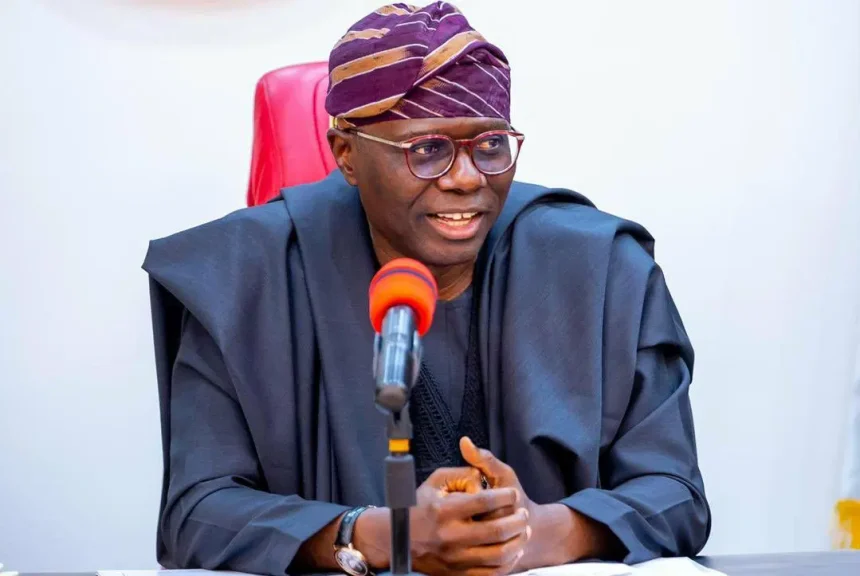Lagos State Governor, Babajide Sanwo-Olu, has called on West and Central African countries to develop a unified safety framework and enhance data sharing to improve ferry operations across the region.
Speaking through his deputy, Dr Obafemi Hamzat, at the Regional Ferry Safety Conference in Lagos on Wednesday, Sanwo-Olu emphasized the need for collaboration and innovation in maritime safety.
The event was organized by the Lagos State Waterways Authority (LASWA) in partnership with the Maritime Organisation of West and Central Africa (MOWCA) and Interferry.
The conference, themed “Charting Safer Waters: Advancing Ferry Safety through Innovation, Collaboration and Integrated Transport Solutions,” brought together stakeholders to discuss safer and more efficient ferry systems.
The News Agency of Nigeria (NAN) reports that the primary objective of the conference is to bring together key stakeholders, including various states accessible by water, government officials, ferry operators, maritime experts and policymakers to engage in productive discussions on the current state and future prospects of ferry transport within the region.
Sanwo-Olu also called for standardised training protocols and innovative technologies that would elevate navigation and emergency response.
He said that Global Positioning System (GPS), radar, automation and advanced ship designs were not options but essential to improve ferry safety in the region.
“Our waterways must not be only conduits for transportation but also bastions of safety.
“Let this conference catalyze change. Together, we must foster partnerships, align our policies, and pursue actionable solutions that will leave a lasting impact long after we depart.
“As the governor of Lagos, I assure you that we are not only ready but also resolutely committed to leading the way in creating a future where ferry transportation is efficient, accessible and, above all, unfailingly safe and sustainable for everyone,” he said.
He noted that Lagos had made substantial investments in modern jetties, ferry terminals, cutting-edge digital monitoring systems, and comprehensive capacity-building initiatives, all aimed at safeguarding the residents.
He said that through LASWA, patrol and rescue boats had been deployed and equipped with state-of-the-art safety gear, and established the first-ever inland waterways monitoring and data management centre.
“We have implemented stricter operational guidelines and introduced the locally-built Omi Bus standard ferries to enhance our regional capabilities.
“However, we must recognise that ferry safety transcends local boundaries; it is a regional imperative. This is precisely why today’s gathering is critical,” he said.
The Secretary-General, MOWCA, Dr Paul Adalikwu, said the gathering was to ensure that ferry transport, which millions of commuters in the subregion relied on daily, was not only efficient and accessible, but also safe.
“The choice to pick Lagos for the conference was predicated on the fact that Lagos is a cosmopolitan city that operates multimodal system transport services and has 22 per cent water coverage area, with an average of about 60,000 daily commuters crisscrossing the main land and islands.
“It is also acknowledged that the state had put in place a robust water transport authority, LASWA.
“The idea is to gather stakeholders in Lagos to under study their model, align it with emerging global best practices and explore areas of improvement that will make ferry services safe and attractive options for human and service mobility,” he said.
The Chairman of Interferry, Mr Tim Mooney, urged collaboration to address the challenges facing ferry operation.
“I am impressed with the LASWA group, from what we experienced when we went round the state. We saw people wearing life jackets in Lagos. This is amazing,” he said.
Also, Mr Bola Oyebamiji, Managing Director, National Inland Waterways Authority (NIWA) said that the conference was a reminder of the critical importance of ensuring the well-being of passengers and crew on inland waterways.
Oyebamiji represented by Mrs Elsie Egwuatu, Head of Marine Services, NIWA, added that NIWA was committed to charting safer waters through innovation, collaboration, and integrated transport solutions.
“We recognise that ferry safety is a shared responsibility that requires collective efforts of all stakeholders. That is why we partner with all stakeholders to achieve this,” he said.



